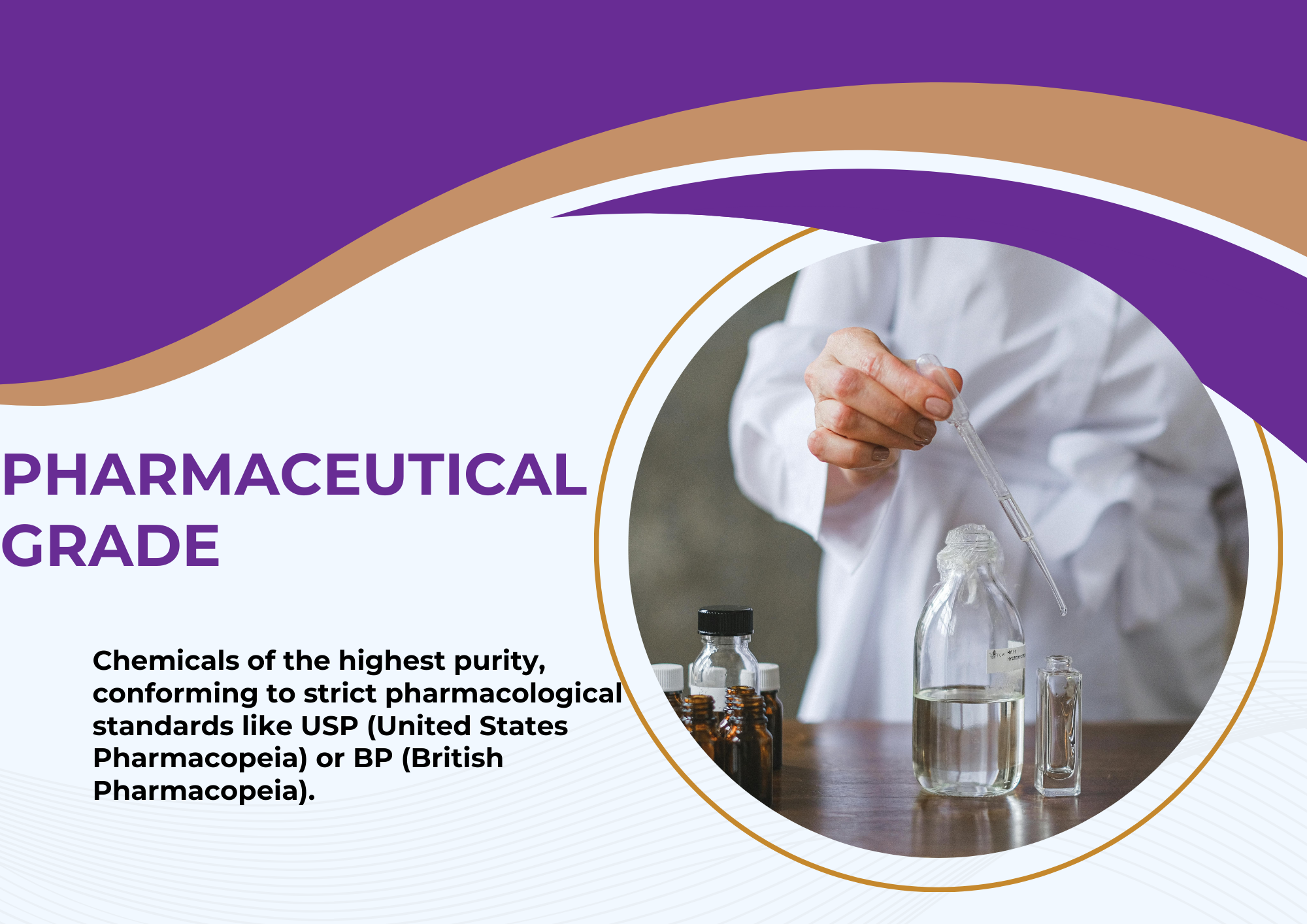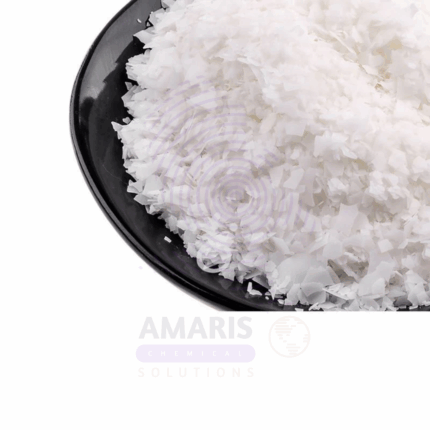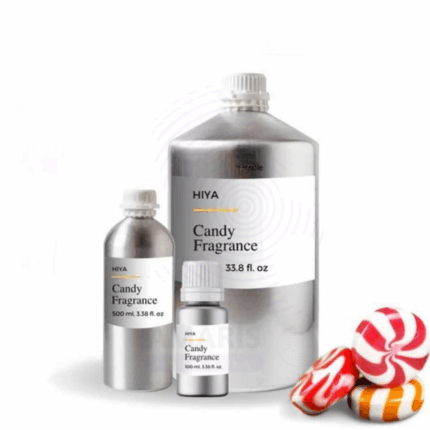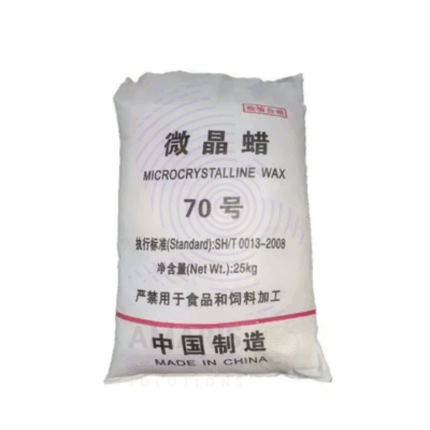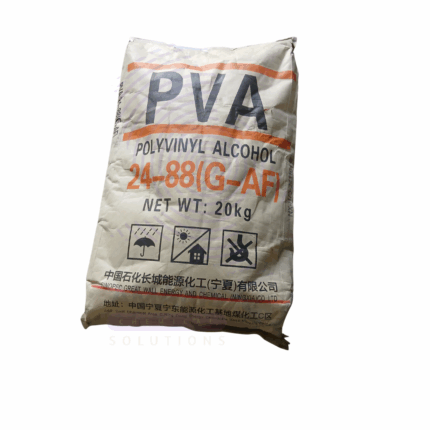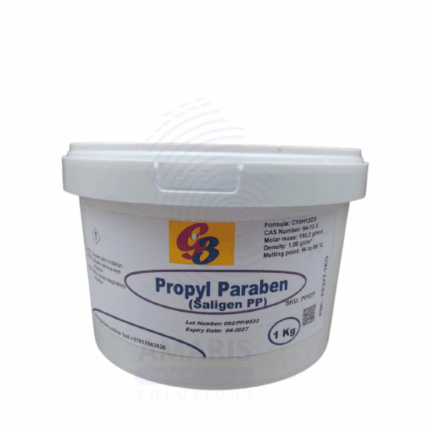Polyglyceryl
Polyglyceryl refers to a family of non-ionic surfactants and emulsifiers made by the polymerization of glycerol units. Depending on the number of glycerol units (e.g., Polyglyceryl-2, -3, -6, -10) and fatty acid esterification (e.g., laurate, oleate, stearate), they offer different emulsifying and solubilizing properties. These compounds are biodegradable, mild, and skin-friendly, making them ideal for use in cosmetics, food, pharmaceuticals, and personal care products. Polyglyceryl esters are often chosen in natural and organic product formulations due to their origin and non-toxic profile.
Primary Uses
Cosmetics & Personal Care Products
Serve as emulsifiers in creams, lotions, sunscreens, serums, and cleansers.
Excellent for oil-in-water (O/W) and water-in-oil (W/O) emulsions depending on HLB value.
Provide a light, non-greasy feel, making them suitable for facial care and sensitive skin products.
Common in natural, vegan, and clean-label cosmetic formulations.
Food Industry
Used as food-grade emulsifiers and dispersing agents (especially Polyglyceryl esters of fatty acids).
Help stabilize emulsions in sauces, dressings, ice cream, and non-dairy creamers.
Improve mouthfeel and texture in reduced-fat or low-calorie foods.
Approved for use under various food additive codes (e.g., E475, E476).
Pharmaceutical Formulations
Act as emulsifiers and solubilizers for oral suspensions, creams, and suppositories.
Improve the solubility and delivery of active pharmaceutical ingredients (APIs).
Used in topical preparations to enhance absorption and skin feel.
Baby Care & Sensitive Skin Products
Due to their non-irritating, non-sensitizing nature, they are widely used in baby lotions, creams, and shampoos.
Ideal for eczema and allergy-prone formulations.
Secondary Uses
Oral Care
Used as mild emulsifiers and solubilizers in toothpastes, mouthwashes, and dental gels.
Makeup & Color Cosmetics
Help disperse pigments uniformly in foundations, BB creams, mascaras, and lip products.
Improve long-wear and spreadability.
Hair Care
Used in shampoos, conditioners, and hair masks to enhance foam stability and moisture retention.
Pet Care Products
Incorporated in grooming sprays, lotions, and medicated baths for pets due to their non-toxic nature.
Industrial & Biotech Applications
Used in bio-lubricants, enzyme formulations, and fermentation processes for their stabilizing properties.
Basic Identification Attributes
Chemical Name (IUPAC): Polyglycerol or Polyglyceryl esters (depends on variant)
Common/Trade Name: Polyglyceryl (e.g., Polyglyceryl-3 Laurate, Polyglyceryl-10 Oleate)
CAS Number: Varies by type (e.g., 29894-35-7 for Polyglyceryl-3)
HS Code: 3402.13.00 (Non-ionic surfactants)
Synonyms: Poly(glycerol); Polyglycerol esters; PG-esters
Physical & Chemical Properties
Physical State: Liquid, viscous paste, or soft solid (depends on molecular weight)
Color & Odor: Colorless to pale yellow; mild to neutral odor
Solubility: Varies (water-dispersible to water-soluble)
HLB Value: Broad range (from 4 to 14 depending on ester type)
pH (1% solution): ~5.0–7.5
Acid Value: Typically <10 mg KOH/g
Saponification Value: 80–180 mg KOH/g
Safety & Hazard Attributes
GHS Classification: Not classified as hazardous
Toxicity: Non-toxic; suitable for ingestion and topical use
Irritation Potential: Very low; suitable for sensitive skin and mucosal membranes
Allergen Status: Allergen-free, non-sensitizing
Storage & Handling Attributes
Storage Conditions: Store in tightly closed containers in a cool, dry place (15–25°C)
Container Type: HDPE drums, food-grade pails, or IBCs
Shelf Life: 2–3 years under optimal storage conditions
Handling Precautions: Avoid contamination; use clean, dry equipment during handling
Regulatory & Compliance Attributes
Complies with:
EU Cosmetic Regulation (EC) No. 1223/2009
FDA GRAS status (for specific esters in food)
ECOCERT and COSMOS-approved (many types)
REACH registered
Environmental & Health Impact
Biodegradability: Readily biodegradable
Ecotoxicity: Low environmental impact
Bioaccumulation: Not expected
Allergenic Potential: Very low; suitable for hypoallergenic products
Safety Handling Precautions
PPE Required: Gloves and goggles for bulk handling
Handling Guidelines:
Avoid contact with eyes and prolonged skin exposure in concentrated form
Ensure clean tools and containers to avoid contamination
Storage Measures: Protect from heat, moisture, and direct sunlight
First Aid Measures
Inhalation: Unlikely; move to fresh air if mist inhaled
Skin Contact: Rinse with water; safe at cosmetic levels
Eye Contact: Rinse thoroughly with clean water
Ingestion: Generally safe; in large quantities, seek medical advice
Firefighting Measures
Fire Hazards: Non-flammable
Flash Point: >200°C
Extinguishing Media: Water spray, CO₂, foam, or dry chemical
Special Precautions: Use standard firefighting gear
Hazardous Combustion Products: Carbon dioxide, carbon monoxide


 Preservatives(food)
Preservatives(food) Flavor Enhancers
Flavor Enhancers Acidulants
Acidulants Sweeteners
Sweeteners Antioxidants
Antioxidants Colorants(food)
Colorants(food) Nutraceutical Ingredients (food)
Nutraceutical Ingredients (food) Nutrient Supplements
Nutrient Supplements Emulsifiers
Emulsifiers
 Collectors
Collectors Dust Suppressants
Dust Suppressants Explosives and Blasting Agents
Explosives and Blasting Agents Flocculants and Coagulants
Flocculants and Coagulants Frothers
Frothers Leaching Agents
Leaching Agents pH Modifiers
pH Modifiers Precious Metal Extraction Agents
Precious Metal Extraction Agents
 Antioxidants(plastic)
Antioxidants(plastic) Colorants (Pigments, Dyes)
Colorants (Pigments, Dyes) Fillers and Reinforcements
Fillers and Reinforcements Flame Retardants
Flame Retardants Monomers
Monomers Plasticizers
Plasticizers Polymerization Initiators
Polymerization Initiators Stabilizers (UV, Heat)
Stabilizers (UV, Heat)
 Antifoaming Agents
Antifoaming Agents Chelating Agents
Chelating Agents Coagulants and Flocculants
Coagulants and Flocculants Corrosion Inhibitors
Corrosion Inhibitors Disinfectants and Biocides
Disinfectants and Biocides Oxidizing Agents
Oxidizing Agents pH Adjusters
pH Adjusters Scale Inhibitors( water)
Scale Inhibitors( water)
 Antioxidants(cosmetic)
Antioxidants(cosmetic) Emollients
Emollients Fragrances and Essential Oils
Fragrances and Essential Oils Humectants
Humectants Preservatives
Preservatives Surfactants(cosmetic)
Surfactants(cosmetic) Thickeners
Thickeners UV Filters
UV Filters
 Fertilizers
Fertilizers Soil Conditioners
Soil Conditioners Plant Growth Regulators
Plant Growth Regulators Animal Feed Additives
Animal Feed Additives Biostimulants
Biostimulants Pesticides (Herbicides, Insecticides, Fungicides)
Pesticides (Herbicides, Insecticides, Fungicides)
 Active Pharmaceutical Ingredients (APIs)
Active Pharmaceutical Ingredients (APIs) Excipients
Excipients Solvents(pharmaceutical)
Solvents(pharmaceutical) Antibiotics
Antibiotics Antiseptics and Disinfectants
Antiseptics and Disinfectants Vaccine Adjuvants
Vaccine Adjuvants Nutraceutical Ingredients (pharmaceutical)
Nutraceutical Ingredients (pharmaceutical) Analgesics & Antipyretics
Analgesics & Antipyretics
 Analytical Reagents
Analytical Reagents Solvents(lab)
Solvents(lab) Chromatography Chemicals
Chromatography Chemicals Spectroscopy Reagents
Spectroscopy Reagents microbiology-and-cell-culture-reagents
microbiology-and-cell-culture-reagents Molecular Biology Reagents
Molecular Biology Reagents Biochemical Reagents
Biochemical Reagents Inorganic and Organic Standards
Inorganic and Organic Standards Laboratory Safety Chemicals
Laboratory Safety Chemicals Specialty Laboratory Chemicals(Special Laboratory Equipment)
Specialty Laboratory Chemicals(Special Laboratory Equipment)
 Demulsifiers
Demulsifiers Hydraulic Fracturing Fluids
Hydraulic Fracturing Fluids Scale Inhibitors(oil)
Scale Inhibitors(oil) Surfactants(oil)
Surfactants(oil) Drilling Fluids
Drilling Fluids
 Dyes and Pigments
Dyes and Pigments Bleaching Agents
Bleaching Agents Softening Agents
Softening Agents Finishing Agents
Finishing Agents Antistatic Agents
Antistatic Agents
 Admixtures
Admixtures Waterproofing Agents
Waterproofing Agents Sealants and Adhesives
Sealants and Adhesives Curing Compounds
Curing Compounds Concrete Repair Chemicals
Concrete Repair Chemicals Anti-Corrosion Coatings
Anti-Corrosion Coatings
 Surfactants(cleaning)
Surfactants(cleaning) Builders
Builders Enzymes
Enzymes Solvents (Cleaning)
Solvents (Cleaning) Fragrances
Fragrances
 Electronic Chemicals
Electronic Chemicals Catalysts
Catalysts Lubricants
Lubricants Photographic Chemicals
Photographic Chemicals Refrigerants
Refrigerants Automotive chemicals
Automotive chemicals Pyrotechnic Chemicals
Pyrotechnic Chemicals
 Biodegradable Surfactants
Biodegradable Surfactants Bio-based Solvents
Bio-based Solvents Renewable Polymers
Renewable Polymers Carbon Capture Chemicals
Carbon Capture Chemicals Wastewater Treatment Chemicals
Wastewater Treatment Chemicals
 Pigments
Pigments Solvents(paint)
Solvents(paint) Specialty Coatings
Specialty Coatings Binders/Resins
Binders/Resins Additives
Additives Driers
Driers Anti-Corrosion Agents
Anti-Corrosion Agents Functional Coatings
Functional Coatings Application-Specific Coatings
Application-Specific Coatings
 Fresh Herbs
Fresh Herbs Ground Spices
Ground Spices Whole Spices
Whole Spices Spice Blends
Spice Blends Dried Herbs
Dried Herbs
 Leavening Agents
Leavening Agents Dough Conditioners
Dough Conditioners Flour Treatments
Flour Treatments Fat Replacers
Fat Replacers Decoratives
Decoratives Preservatives(baking)
Preservatives(baking)
 Plasticizers & Softeners
Plasticizers & Softeners Reinforcing Agents
Reinforcing Agents Adhesion Promoters
Adhesion Promoters Vulcanizing Agents
Vulcanizing Agents Antidegradants
Antidegradants Blowing Agents
Blowing Agents Fillers & Extenders
Fillers & Extenders Accelerators & Retarders
Accelerators & Retarders



